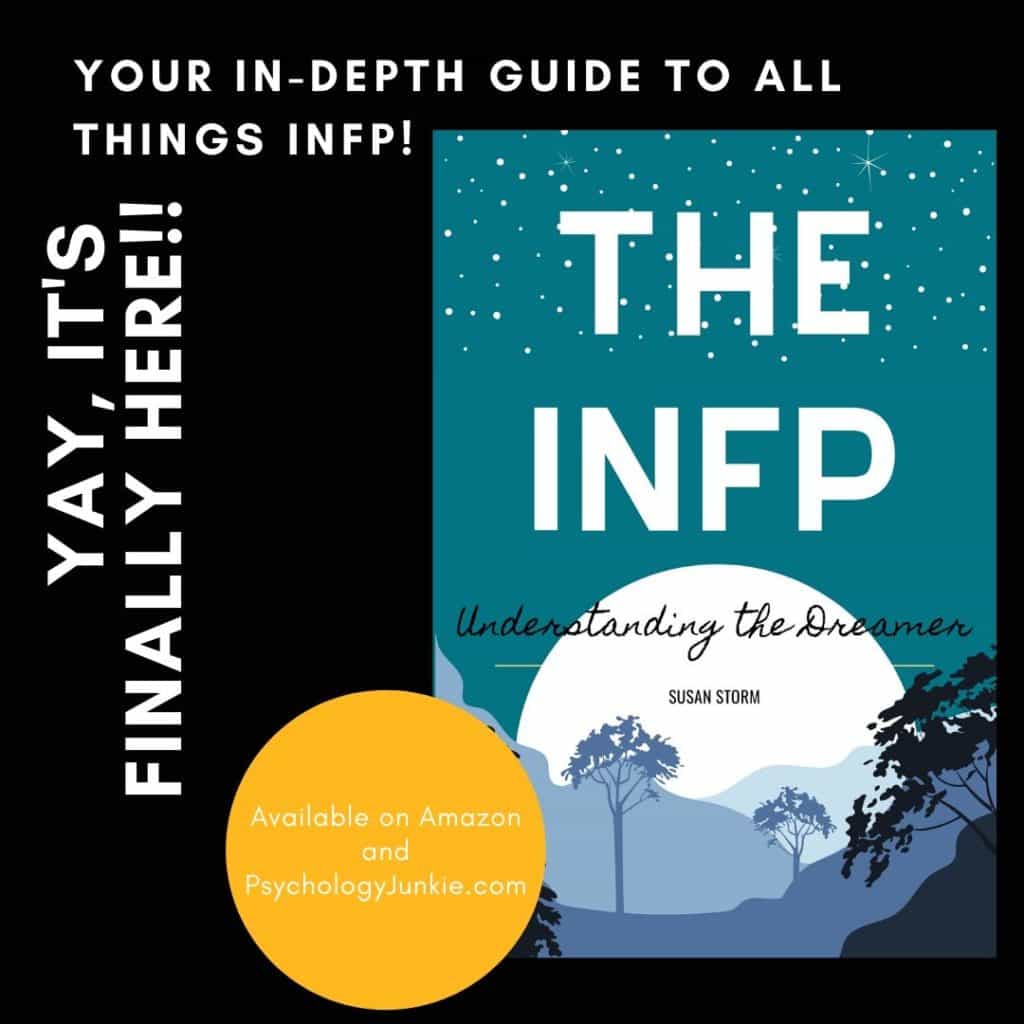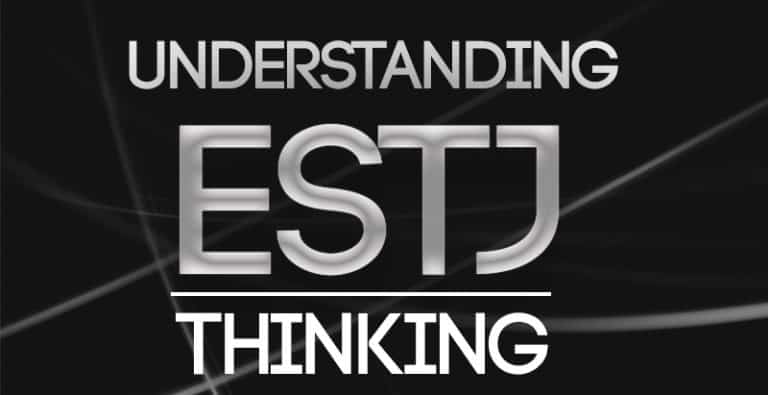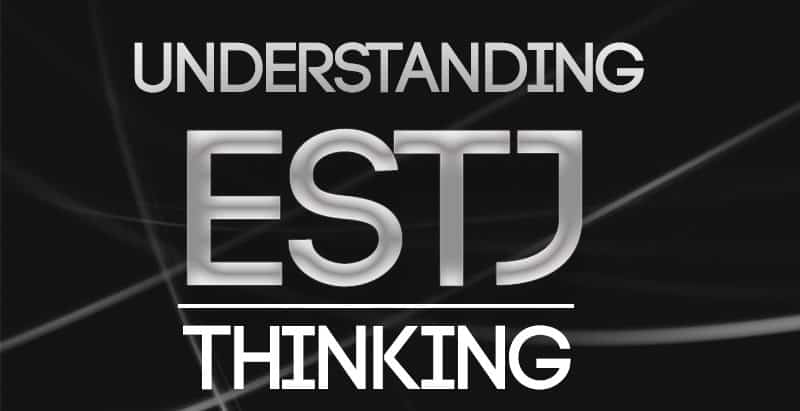Here’s Why INFPs and INTPs Get Misunderstood
Two of the personality types that I see getting misrepresented or misunderstood over and over again are the INTP and INFP personality types. These types are frequently underestimated or given one-dimensional descriptions that don’t do them justice. Why are these types so frequently misunderstood? That’s what I hope to explain in this article, and if you have any thoughts about this be sure to mention them in the comments!
Not sure what your personality type is? Take our new personality questionnaire here. Or you can take the official MBTI® here.

Why INFPs and INTPs Get Misunderstood
Both INFPs and INTPs have some major differences. INFPs are dominant feeling types and INTPs are dominant thinking types. However, there are some very particular preferences and functions that these two types share, let’s take a look:
INFPs and INTPs are both introverted judging types
“Wait!” you might be thinking, “but aren’t they perceivers? They don’t have a J at the end of their type code!”. This is where the Myers-Briggs theory gets a little confusing. To avoid confusion, I’m going to give you some brief pointers about personality theory before we begin.
Judging processes are what we use when we make decisions. Thinking and feeling are judging processes.
Perceiving processes are what we use when we gather information. Sensing and intuition are perceiving processes.
The J or P at the end of your type code tells us which function is the first one that you extravert, not which function is your dominant (favorite) function.
So the “P” at the end of your type code is essentially saying, “Hey! This type extraverts intuition or sensing, so they’re going to have a more adaptable, spontaneous approach to their environment”. If you have a J at the end of your type code it’s saying, “Hey! This type extraverts judging, so they’re going to have a more structured, methodical way of relating to their environment.”
You can find out more about this here.
IP personality types are dominant judging types who extravert a perceiving process (intuition or sensing).
IJ personality types are dominant perceiving types who extravert a judging process (thinking or feeling).
But what does this have to do with being misunderstood?
Because INPs both introvert their decision-making process, many people are confused by their actions and decisions. INPs don’t seek external guidance for their decisions as much as internal guidance and congruency. So outside rules, standards, and expectations are less important to them than their own inner standards.
For the INFP, social expectations and social norms mean very little. The important thing is staying true to their authentic, core values which are intensely personal.
For the INTP, empirical truths and external rules mean very little. Everything must be questioned based on a highly-detailed set of internal principles and truths.
The decision-making process of INPs is often invisible to the eye.
While FJs and TJs look for some kind of consensus to form their judgments and decisions, FPs and TPs look inside to a subjective standard. This tends to show up in school – INPs tend to care much less about grades and meeting external milestones than other types. They are more concerned with meeting their own standards than the standards their teachers or their communities have placed on them. This tends to get them misrepresented as “lazy”, and many times their intelligence is underestimated.
In contrast to how they are perceived, both types are usually on the intelligent side. According to the MBTI® Manual, INTPs and INFPs are two of three types with the highest IQ scores. They are also statistically the two types with the highest SAT-V scores. Both types enjoy the subject of art in school and are usually creative. Unfortunately, this tends to backfire in very traditional schools where art and creativity are given second place to test scores and memorization.
Because INPs don’t usually run their decisions by others for outside approval they can be unfairly seen as inconsiderate. Because they don’t tend to analyze their decisions based on external expectations their choices tend to come as a surprise to many people. While an ESTJ would verbalize their thinking and decisions and might seek outside input, an INP might suddenly blurt out that they’ve made a big decision right as they are about to do it. This “surprise attack” is usually unintentional. They just don’t naturally “talk out” their decisions like J types are more apt to do. They don’t feel a compulsion to get other people’s input on what they are going to do because they judge their decisions by a subjective standard.
INP Intuition
What INPs do vocalize are their ideas and the random connections they see in the world around them. They ask why, play devil’s advocate, and look for core motives (INFPs) or accuracy (INTP). Potential is always something they seek. They’re curious and they enjoy discussing theoretical, abstract topics like philosophy, psychology, art, math, or any number of conceptual or creative ideas. They like looking at things from unusual angles and enjoy thinking outside-the-box. This can sometimes get them in trouble or inadvertently cause them to offend others. “Why are you questioning our traditions?”, “Why can’t you just go along with what’s normal?”, “Why do you ask so many questions?“. These kinds of statements are often the bane of the INPs existence. They are often seen as impulsive even when their decisions have been the fruit of long and arduous thought. They are often accused of being “stuck in their heads” because they spend a lot of time ruminating over their decisions.
It’s All About Autonomy
INFPs and INTPs are extremely independent individuals and they hate the idea of being confined to external standards and routines. They don’t want to have dominance over other people and they don’t want anyone else to have dominance over them. They are selective about who they share their inner worlds with and because their feelings and judgments are so private, they can struggle to express them to the outside world. It’s very common for INPs to express themselves elegantly in writing or in their own minds, and then stumble over their words while speaking. Of course, there are always exceptions. Anyone can be a good communicator, but for INPs this is often a learned skill.
This doesn’t mean that INPs enjoy it when people misunderstand them or underestimate them. They often crave some sense of solidarity with others, but because they are both so individual and private, they can struggle to find the understanding they may very deeply crave.
What Are Your Thoughts?
Have you been misunderstood as an INP? Have you had a positive experience being understood? Let us know your thoughts in the comments!
Find out more about your personality type in our eBooks, Discovering You: Unlocking the Power of Personality Type, The INFJ – Understanding the Mystic, and The INFP – Understanding the Dreamer. You can also connect with me via Facebook, Instagram, or Twitter!
Other Articles You Might Enjoy:
The Online Myths About Your Myers-Briggs® Personality Type
Here’s What Gives You Peace of Mind, Based On Your Personality Type
Here’s What Overwhelms You, Based On Your Personality Type
7 Things That INFPs Experience As Children
The Childhood Struggles of INTPs
About Me:
My name is Susan Storm, and I’m an MBTI® practitioner and all-out psychology lover. I’ve been studying Jungian typology as well as developmental & childhood psychology for over ten years. Along with blogging about personality type, I love taking care of my 5 children and staying up late reading Kierkegaard. I’m an INFJ personality type. Follow me on Facebook, Twitter, or Pinterest to find out more about typology!
Subscribe to Our Newsletter

Want to discover more about personality type? Get the inside scoop with Susan Storm on all things typological, along with special subscriber freebies, and discounts on new eBooks and courses! Join our newsletter today!
















This is so me… *Cries*
People often thought it’s strange for me to just want to open a small cafe, while my IQ and grades are off the chart. They think I have no ambition.
Well, that’s not necessarily untrue, but I just want to live a quiet and ordinary life. I don’t think I can do a nine-to-five corporate jobs, it’s killing me.
This is great Susan! I completely agree! I’m an INFP. Usually I find mostly the same content about things defining INFPs, stuff I’ve read before or things that have just been slightly reworded from other sources. This one though is the first one in a long time that I’ve seen accurately describe me in a way I haven’t before. I really like the way you laid it out too. I’ll be looking around for more INP stuff from you. Thank you for sharing ?
Thanks so much Lewis! I really appreciate your input! I definitely got a lot of my information from great books and courses so I can’t take complete credit 🙂 But I’m really glad you enjoyed the article!
I’m INFP and my husband is INTP. I think we are both often misunderstood, but we are usually able to understand each other very well.
Yes. I’m an INTP and I get misunderstood all the time. I feel pressure to act in a way that makes sense to others. Ultimately this is futile. My thoughts seem so ordinary to me, but are often a surprise to others. I have to explain constantly what and why. It’s annoying.
Hi David! I’m really sorry you have to struggle with this. I see this being a struggle for every INTP I know. I hope that more people will learn about type so that there is less confusion and more appreciation for less common types like yours!
As i read this, it was like looking in a mirror. How did you get so good at this? I’m an INFP. I had a boyfriend once, who was INTP. He was looking for a wife, going about it scientifically, and i kept questioning his motives. He was going for accuracy, and i broke up with him because i couldn’t stand the structure! I still think we might have worked out, if i could have gotten past my need to find out his underlying reasons, but i would have been going against my very nature, wow.
That thinking/feeling divide can be tough! I’m a feeler (INFJ) married to a thinker (ESTP) and I love him like crazy but there are always problems with miscommunication sometimes. I’m glad you enjoyed the article and I really appreciate your feedback!
This is great . I have INTP preferences and this article resonates greatly with my experience. ?
I’m really glad you enjoyed it Daniel! Thank you for your input!
I often say I don’t concert well to others, this is spot on!!
Thanks that really resonated with me (I’m INTP). I find it strange when people know more about me than I do!
I’m really glad you enjoyed it Andrew!! Thanks for your feedback 🙂
Best into article. The accuracy is bewildering
What about the fence sitters borderline intro extros?